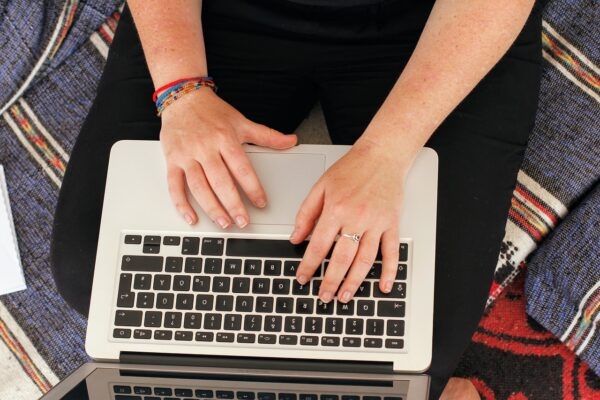
Peggy_Marco / Pixabay
Freelancing is set to become the dominant career path in the world, according to a study by Upwork, and 36% of the workforce is already freelancing. Between gig economy companies, people opting for freelancing over jobs with no security, or people losing their jobs and turning to freelancing, the working world is about to become a lot more individual. Add onto that how the vast majority of freelancers work remotely, and we’re looking at a very different world from the office-employment centricity of the past.
When transitioning not only to remote but also to freelancing, there’s a huge risk of falling into the pitfalls of remote work. Not only is there a greater risk of feeling isolated, but there are challenges around mental health, getting into a rut, and figuring out what kind of “remote work” works best for you.
I’m a freelancer and a remote worker – something I’ve been doing since 2017. I even wrote a bestselling book called The 50 Laws of Freelancing, geared specifically toward helping freelancers build profitable businesses. Here are my best tips for successfully building a freelance business while avoiding the pitfalls of remote work.
We’re in a freelancing mental health and isolation crisis
Nearly twice as many freelancers struggle with mental health issues as compared to office workers – 55% of freelancers versus only 30% of office workers. And it’s no wonder. In an office environment, you have (relatively) secure pay, a physical space to work in, probably a couple perks like snacks or the occasional catered lunch, and coworkers to commiserate with. While you can eventually build up this kind of network as a freelancer, it takes a lot longer and usually is on your own dime.
Perhaps making things even worse, feelings of isolation can creep in even when you do have an office environment, so simply getting a coworking membership won’t solve the problem. Isolation is more common for freelancers, though, with 64% reporting they feel isolated on a daily basis.
Simply put: freelancers – especially remote freelancers – are at a higher risk of mental health challenges. That doesn’t guarantee you’ll have a problem, but it’s something to watch out for.
Beyond mental health, remote freelancing has other pitfalls
Perhaps you aren’t facing mental health issues. Or you are, but are actively managing them. That’s awesome. Sadly, it doesn’t mean you’re out of the woods as a remote freelancer. There are a few other issues that could hit you.
64% of freelancers report feeling isolated on a daily basis
Source: Viking Blog Study
Getting into a rut: 63% of freelancers feel anxious about the work they have to accomplish. When you work alone and remotely, there’s a solid chance that a couple bad days can turn into a weeks-long rut. You can’t produce at the same quality you used to, which directly impacts your earning potential. That creates anxiety, which further limits your ability to produce… and so on.
Not finding the right form of remote work for you: There are many different kinds of remote work, and being a freelancer means having the flexibility to choose the kind that works for you. However, many freelancers get stuck in one kind of remote work: working from home. While effective for a lot of people, it may not be ideal for your personality type or what you want to get done.
Managing clients remotely: Even in a COVID world, not everyone knows how to work with remote colleagues, let alone remote freelancers. Explaining how you work with clients constantly can be not only a mental drain but also a time suck, taking you away from other work.
Not having anyone to bounce ideas off of: Perhaps one of the biggest pitfalls of freelancing in general, exacerbated by remote work, is not having anyone to bounce ideas off of. You can’t gut check things you know are right but want confirmation on. You can’t get feedback on novel ideas. It makes growth more difficult as a freelancer.
Breaking through remote work’s pitfalls as a freelancer
Sharing some of my own experience plus other best practices, here are ways that freelancers can tackle the pitfalls of remote work.
Mental health: Know the signs and the recovery tactics
Everyone is susceptible to mental health challenges – even just short lived ones like a really hard day getting you down. The key is to recognize what’s going on (particularly recognizing the signs of burnout). From there, know how to intervene on your own behalf, a process called mental health first aid. These small “first aid” interventions can help keep a bad day from spiralling into a rut.
Don’t focus on negative things, but don’t ignore them. Shine a light so you can see them clearly and fix the problem.
Isolation: Get out of the house
When I started freelancing, I didn’t leave my apartment much. I was so used to an office environment that forced me to leave my home that I just forgot to when it wasn’t a requirement. This alone caused feelings of isolation. To combat it, I went to the gym more often and consciously worked from cafes occasionally. I also co-worked with friends. When that wasn’t possible, I at least went for walks so I was physically out of my home for a bit. It served as a great reminder just to see people, even if I didn’t talk to anyone.
Avoiding a rut: Find ways to show progress
One thing I liked about working in an office was the instant validation you’d get from when you delivered work. You could see them and hear them say thank you. That doesn’t happen as a remote freelancer. What I did to still feel like I was making progress every day was to send myself an email each morning, broken up into four categories:
- Run the business.
- Grow the business.
- Client work.
- Personal.
Under each, I’d put my key tasks for the day. As I accomplished tasks, I’d cross things off the list. It sounds rudimentary, but it helped me not only get a feeling of progress every single day but also helped me feel some consistency (which is not always normal for freelancing, as each day can be wildly different from the others).
Run experiments and talk with gratitude
When I first began working remotely, I assumed I needed to work from home to be successful. But then I started running experiments. I’d work from a cafe. Then a coworking space. Then maybe a friend or family’s home. It all started to work… I could still get things done. So I tried something bigger: I worked while travelling. Then I worked while volunteering in a French chateau. It was amazing!
I also started being very explicit about the things I was grateful for. So often, I found that I’d share what I was excited or happy about, but I wouldn’t actually say I was grateful for it. If I had a bad day, I’d talk about the negative without referring to the positive. It put me in a negative-focused mindset. I don’t ignore the negative things in my life now (that would be equally damaging), but I explicitly focus on the things I’m grateful for.
Resources and next steps for remote freelancers
I started my remote freelance business in 2017 when remote work was still a fairly background concept. I wasn’t able to find as many resources as there are today. That’s why I am so excited about what’s going on in the world.
If you’re looking for more resources and other firsthand experiences, here are a few things to check out:
Remotely Inclined: I publish this regular newsletter focused on running a business remotely. It also features interviews with other remote business owners and remote freelancers.
#FreelanceChat: This weekly Twitter chat is a great way to connect with other freelancers (most are remote!).
The Professional Freelancer: A regular newsletter by New York Times freelancer Anna Codrea-Rado. The free version has a lot of insights and the premium version has in-depth stories about building a freelance business.
IndieHackers: An online social network for freelancers and other “indie hackers” (solo entrepreneurs building cool things with technology).
The 50 Laws of Freelancing: My bestselling book with action-oriented advice for building your freelance business.
Business & Finance Articles on Business 2 Community
(56)



